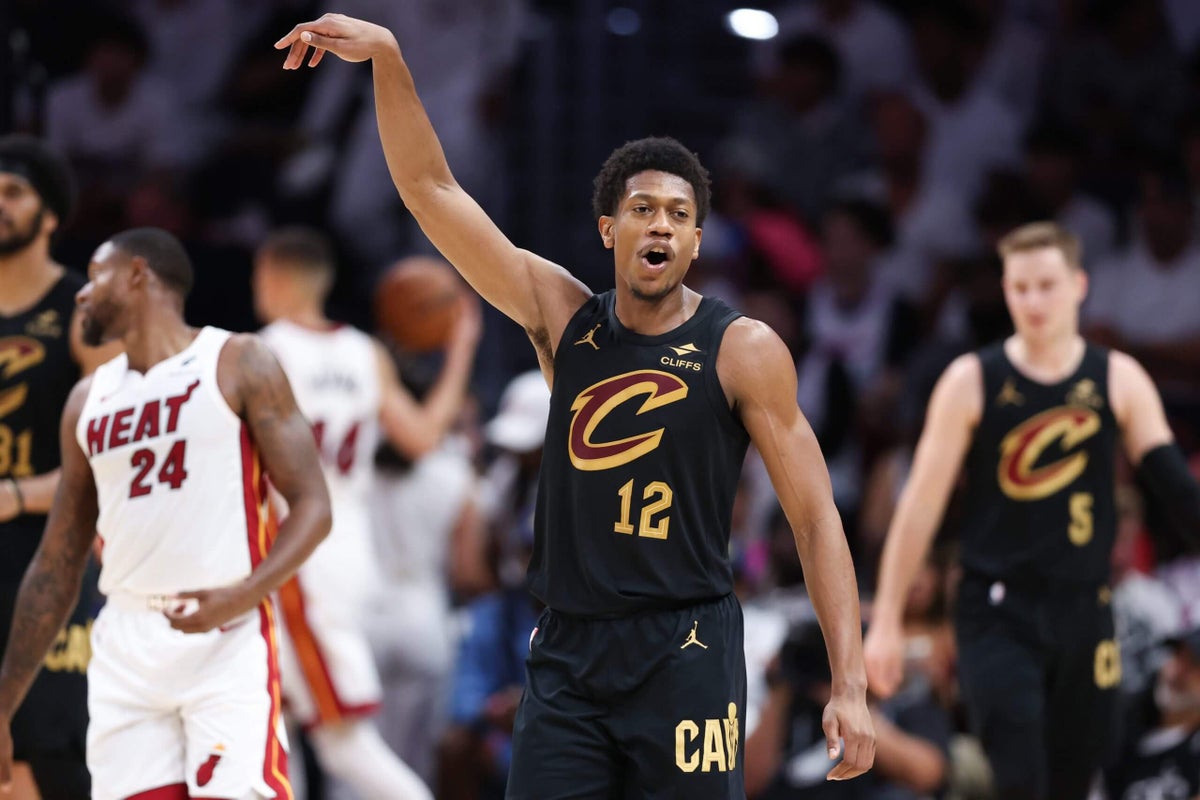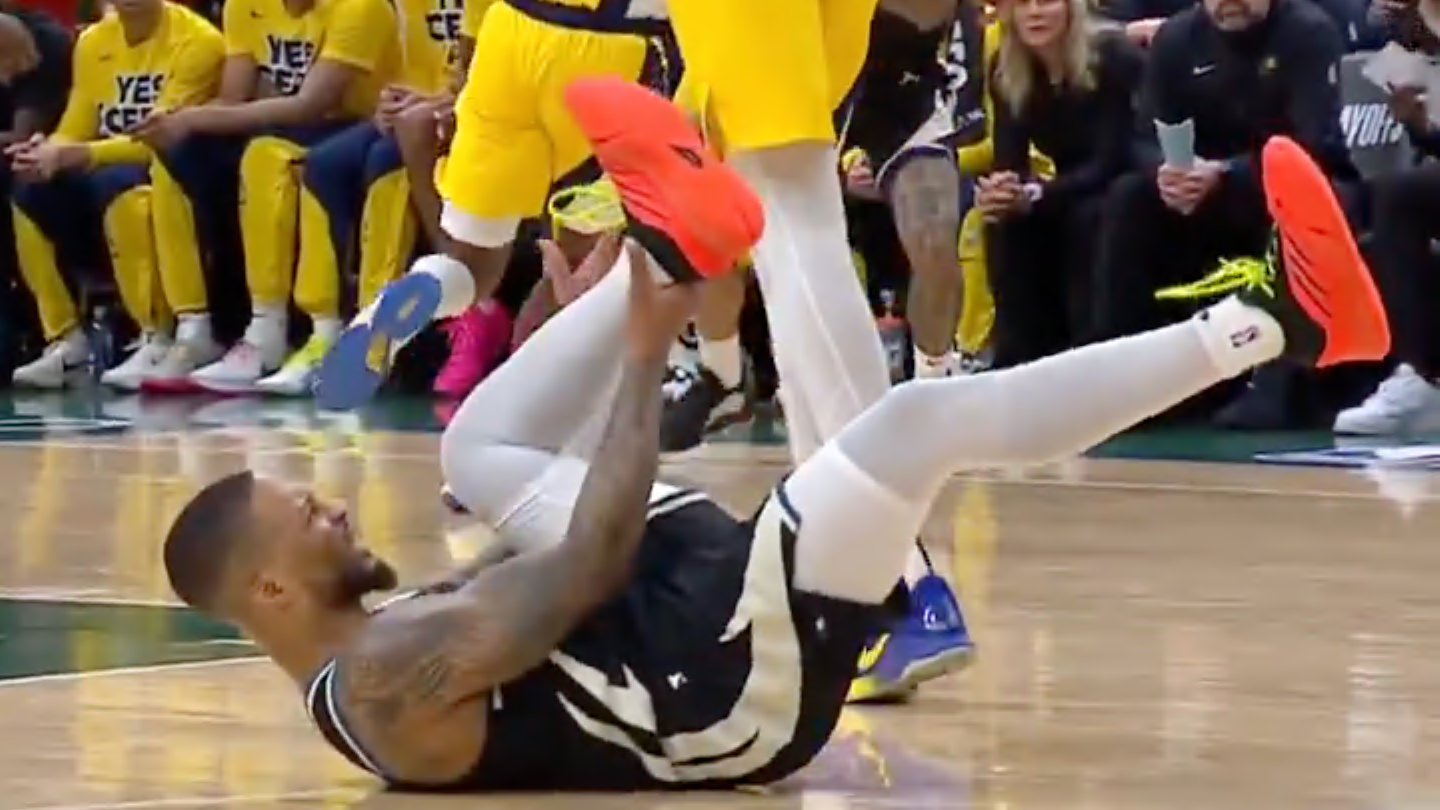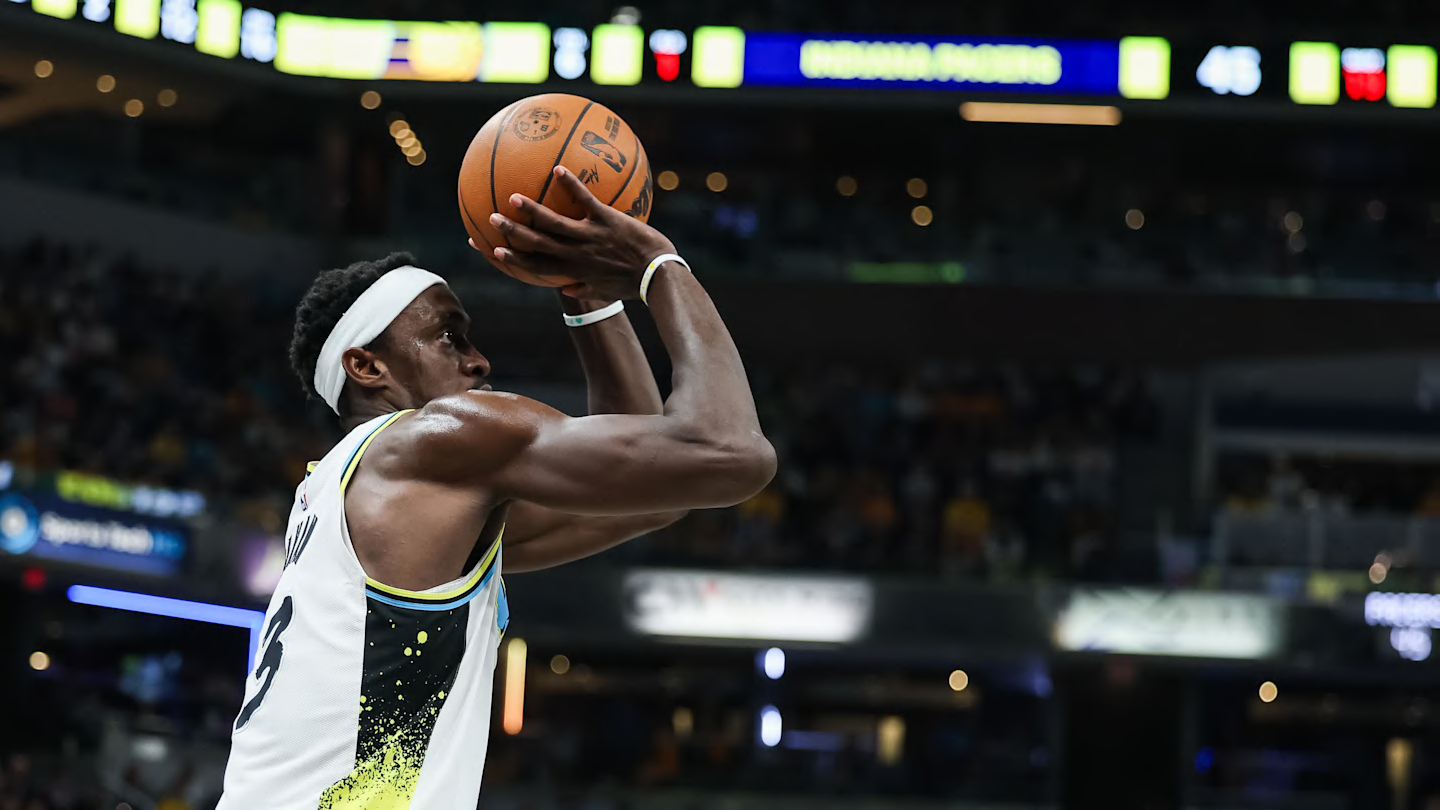
MIAMI — After the most lopsided playoff series in NBA history, we probably should stop short of making too many grand pronouncements about its author.
Yes, the Cleveland Cavaliers are a really, really good team — and a dangerous one, too. But they presented all the evidence to make that case during their historic regular season. Beating the Miami Heat, who finished 27 games behind them in the East, by a combined 122 points was impressive, especially considering the Cavs’ point differential of plus-92 in the two games at Miami.
It’s almost hard to forget that the first two games in Cleveland were kinda close, especially Game 2, which was a two-point game in the fourth quarter. What happened since was a combination of the Heat’s lack of top-level talent showing itself and fatigue from a long, hard two seasons’ worth of drama with Jimmy Butler. A (mostly) healthy, rested, deep and hungry Cavs team pounced.
Advertisement
The Cavs’ 138-83 blowout victory in Game 4 set franchise playoff records for points and margin of victory. This is their first sweep since 2018, and they are the first team since the Utah Jazz in 2020 to score at least 120 points in each of their first four playoff games. (Donovan Mitchell was on that Jazz team.)
Darius Garland missed the last two games of this series with a left big toe sprain. Coach Kenny Atkinson said, “I don’t think it’s an eight-week thing,” but he also said he would have rather Garland, if he were healthy enough, playing in Game 4. In other words, they weren’t holding him out because the series basically was decided. Completing a sweep earns the team at least a few extra days off, which is good for Garland’s toe, but his health is in question heading into the second round.
Otherwise, this is a team that shot 44 percent from 3-point range, won the rebounding battle, averaged fewer than nine turnovers per game and limited the Heat to an average of 95.5 points per contest in the series. Miami averaged 110.6 points per game during the regular season. Seven Cavs averaged double-figure points in the series, led by Garland (24.0) and followed closely by Mitchell (23.8).
De’Andre Hunter’s series, on the whole, was a lot like how he played with the Cavs during the regular season. But his emergence as an offensive threat as the series progressed served as a stark reminder of how devastating the Cavs’ offense is when he shoots and scores like this coming off the bench.
Hunter scored 19 points in Game 4 on 6-of-11 shooting with three 3s, following a 21-point outing in Game 3 and a 12-point effort in Game 2. In Game 1, he failed to score and missed all four of his shots.
“We really didn’t make any adjustments,” Atkinson said about Hunter — who actually contradicted his coach by saying Cleveland’s staff put him in different spots in the offense for Game 2 and called a few plays to get him going.
Advertisement
“I think it was just him kind of gaining more confidence and being more comfortable,” Atkinson said.
Atkinson also mentioned that Ty Jerome’s huge first game, in which he scored 28 points, helped Hunter because the Heat sent an extra man at Jerome to get the ball out of his hands, and one former Virginia Cavalier (Jerome) found the other (Hunter) for some open looks.
“Shoot, if they want to double-team Ty and leave me open, that’s fine,” Hunter said. “It’s gonna be different next series; hopefully, it’s the other way around. Maybe I get a good Game 1 and they send people at me.”
I want to come clean with something: I thought Hunter had regressed as a shooter and scorer following his torrid first month with the Cavs, when he averaged about 14 points and shot nearly 55 percent from 3-point range. No wonder Cleveland literally won Hunter’s first 15 games with the team since it acquired with from the Atlanta Hawks.
Hunter had a memorably poor shooting in a loss to Orlando in mid-March going 2-of-11, and before that, he had a couple of quiet nights while the Cavs were still winning. They closed the season going 8-8 over their last 16 games. Hunter averaged about 14 points in that stretch, and his 3-point shooting dropped significantly to 37 percent, so the team’s so-so finish and him missing a few more 3s probably played into my thinking that Hunter was going through a lull.
But when Game 1 against the Heat rolled around, Hunter looked a little lost. He seemed tentative in the offense, didn’t appear to be all that eager to shoot and played just 16 minutes. Cleveland can’t have that version of Hunter as the playoffs stretch into the later rounds, which is why the three games he turned in to close this series were so refreshing.
“My only concern was, from my perspective, like, ‘Man, I’m kind of not finding the right position for him to succeed,’” Atkinson said. “That’s the first thing you look at: Am I relying too much on the other guys that I know? … I think it was circumstances; the guy hadn’t been home, (and) we go on that hellacious road trip. He kind of gets off his routine, doesn’t have a place, he’s staying in the hotel. I just think he got off-kilter, where maybe in the beginning he was just coming in with adrenaline.
Advertisement
“Once he got back, kind got his feet under him, he took off again.”
Just about everyone is playing well right now. The Heat posed absolutely no challenge whatsoever in the final two games. Cleveland’s next opponent, likely the Indiana Pacers, should provide a stern test.
Having a 6-foot-8 wing off the bench who drains 3s and gets to the rim — like the Cavs have with Hunter — usually helps.
“I’m extremely comfortable,” Hunter said.
(Photo of De’Andre Hunter: Megan Briggs / Getty Images)


